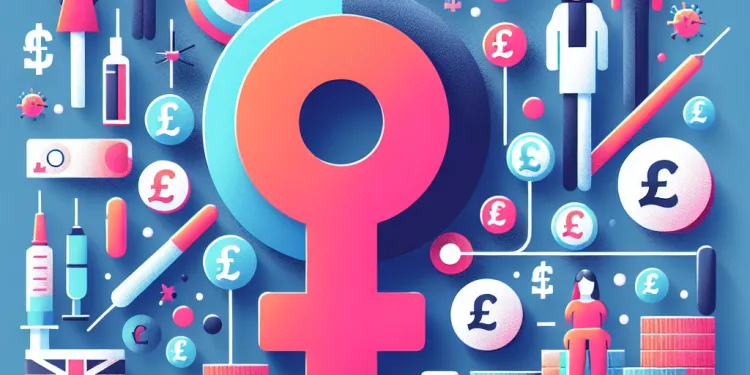
Find Help
More Items From Ergsy search
-
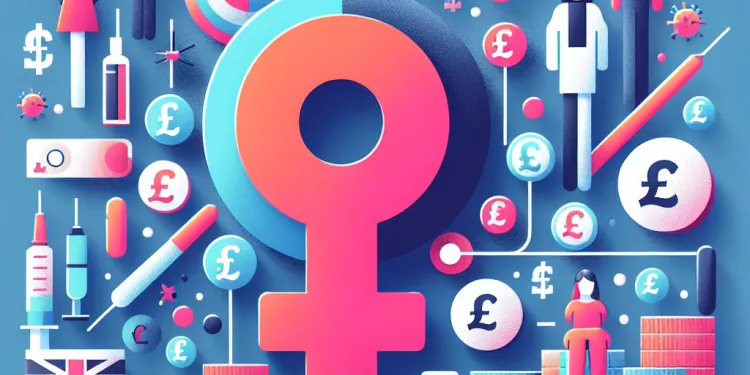
Surge in HPV Vaccination Rates Among Young Women in the UK
Relevance: 100%
-

Do men need the HPV vaccine?
Relevance: 75%
-
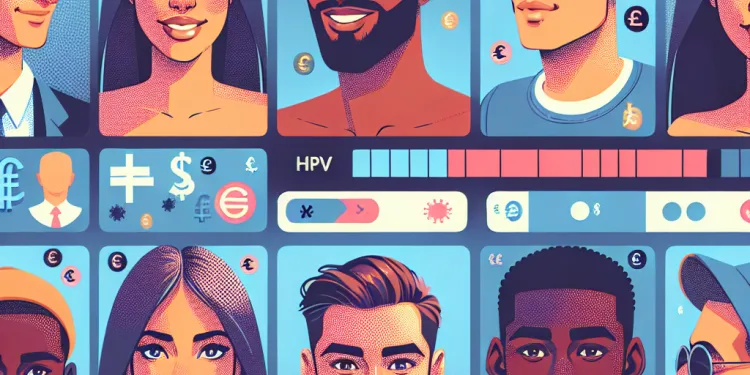
Can HPV affect both men and women?
Relevance: 70%
-
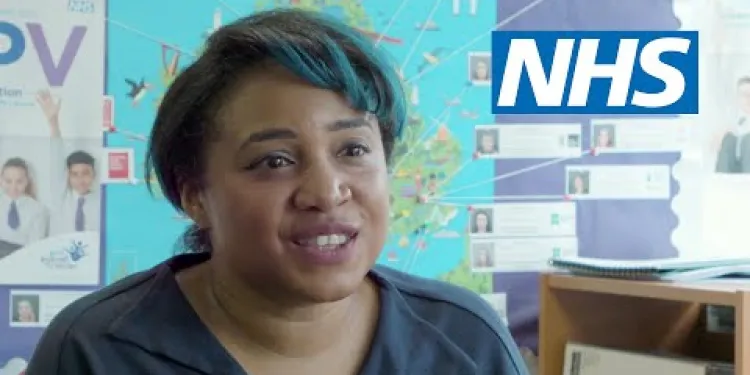
What is the year 8 HPV vaccine? | NHS
Relevance: 62%
-
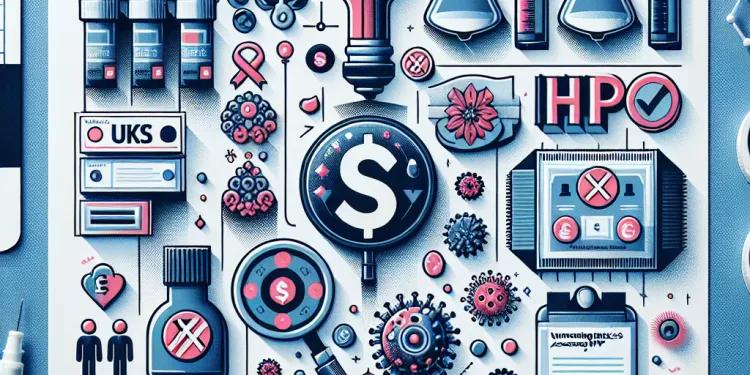
What age group is most at risk for HPV?
Relevance: 61%
-
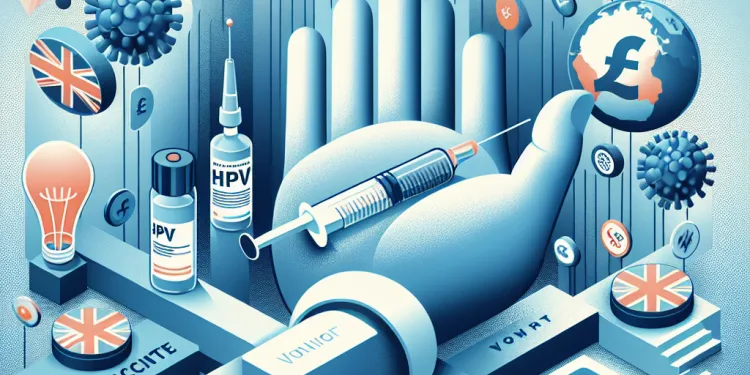
Who should get the HPV vaccine?
Relevance: 60%
-
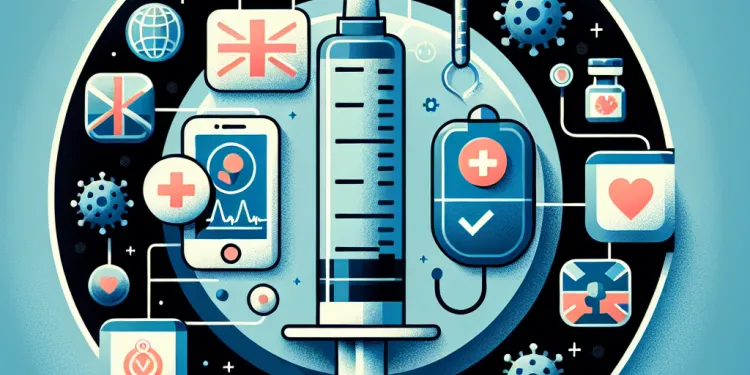
Is there a vaccine for HPV?
Relevance: 58%
-

How common is HPV?
Relevance: 58%
-
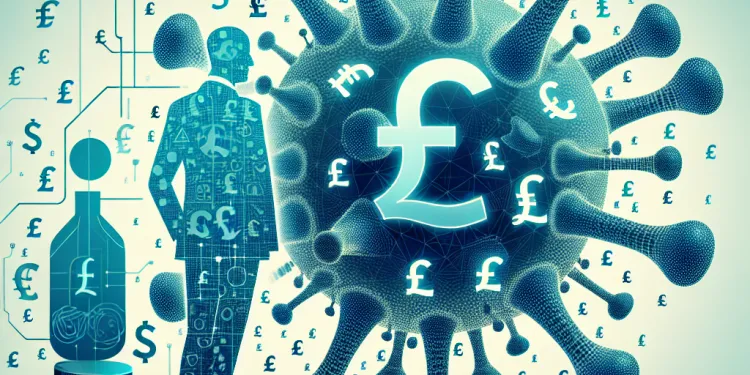
What is the HPV Virus?
Relevance: 56%
-
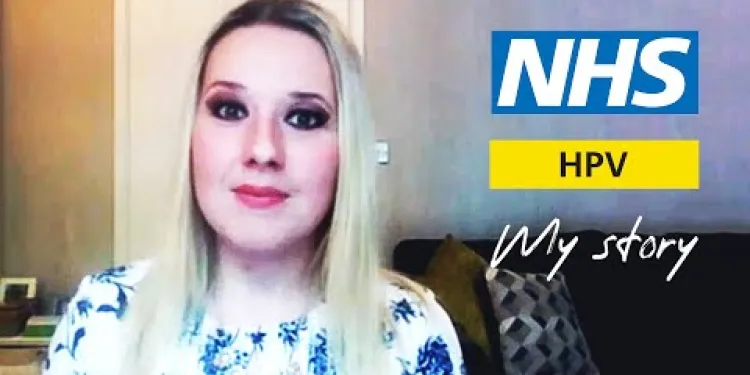
HPV - My Story | NHS
Relevance: 55%
-
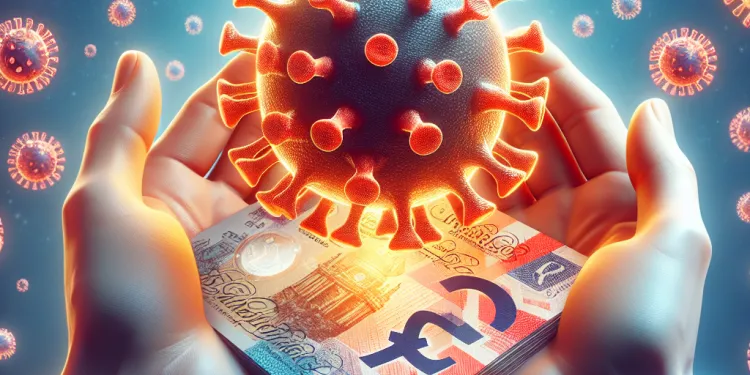
Can HPV lead to cancer?
Relevance: 54%
-
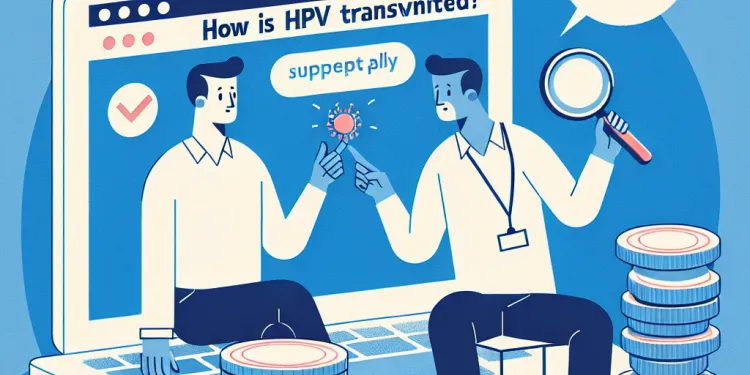
How is HPV transmitted?
Relevance: 53%
-
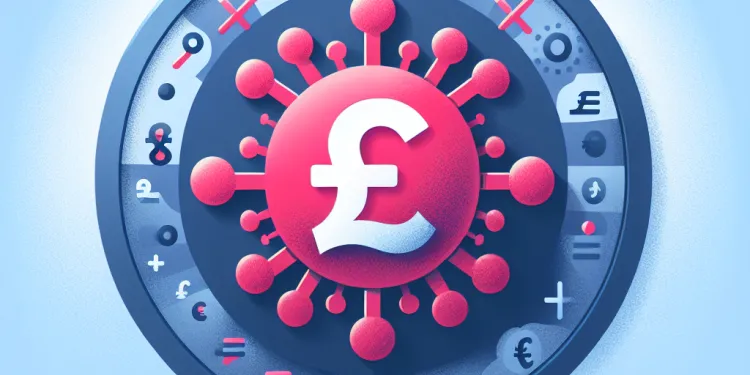
How can HPV be prevented?
Relevance: 52%
-
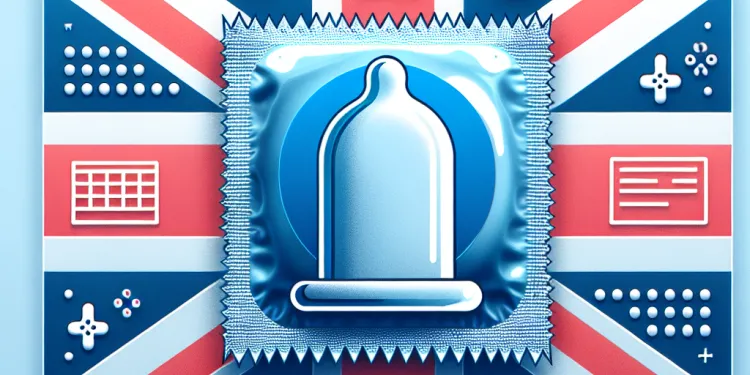
Can using condoms fully protect against HPV?
Relevance: 52%
-
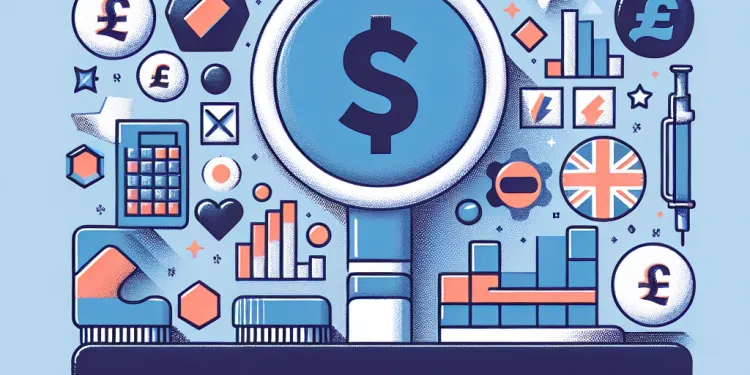
Can HPV be treated?
Relevance: 52%
-
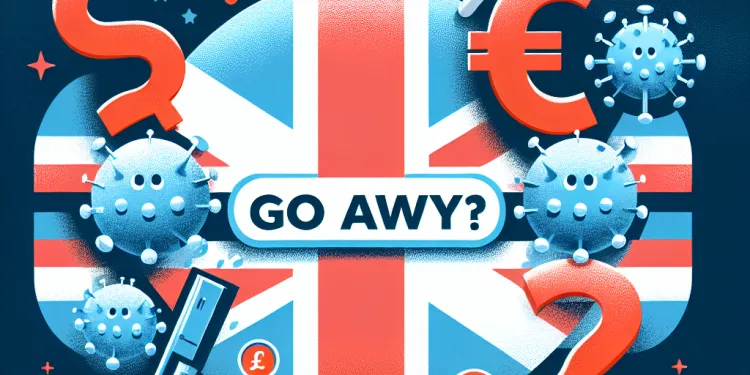
Can HPV go away on its own?
Relevance: 51%
-
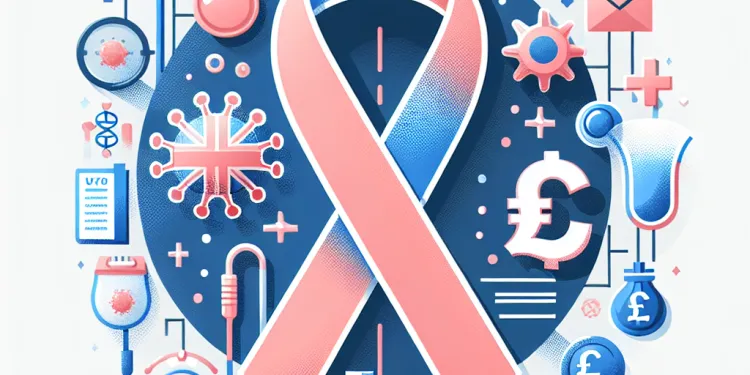
What is the link between HPV and cervical cancer?
Relevance: 51%
-

Can pregnant women get the flu vaccine?
Relevance: 47%
-
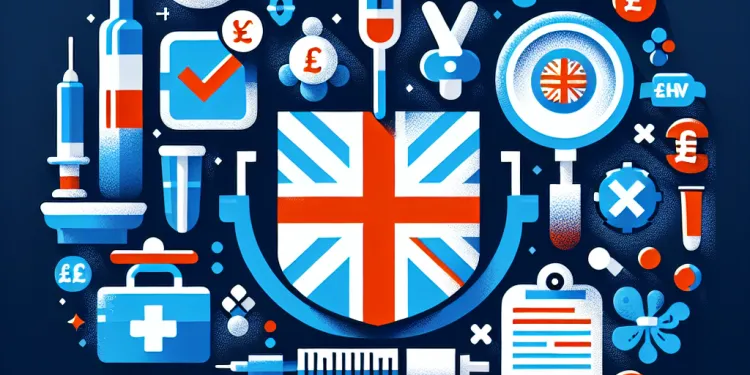
Is HPV testing available?
Relevance: 46%
-

Are there symptoms of an HPV infection?
Relevance: 46%
-

What health problems can HPV cause?
Relevance: 45%
-

Why are teenagers and young adults recommended to get the MenB vaccine?
Relevance: 36%
-
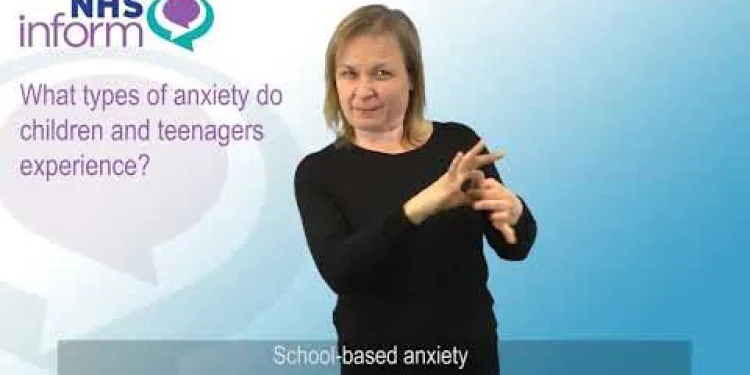
Anxiety in young people
Relevance: 36%
-

What is a subunit vaccine?
Relevance: 35%
-

Is there a vaccine for H3N2?
Relevance: 34%
-
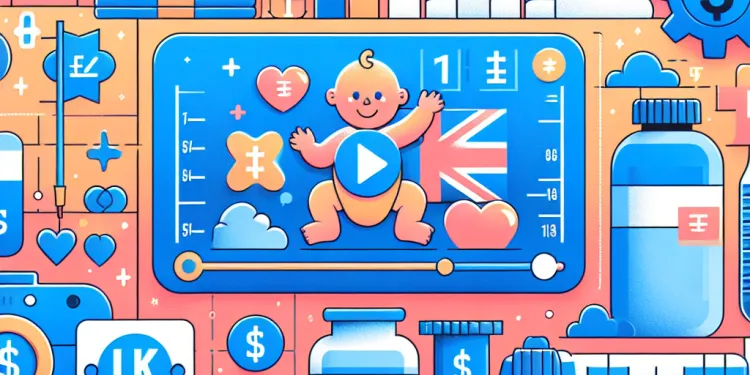
Children's Vaccination Schedule
Relevance: 34%
-
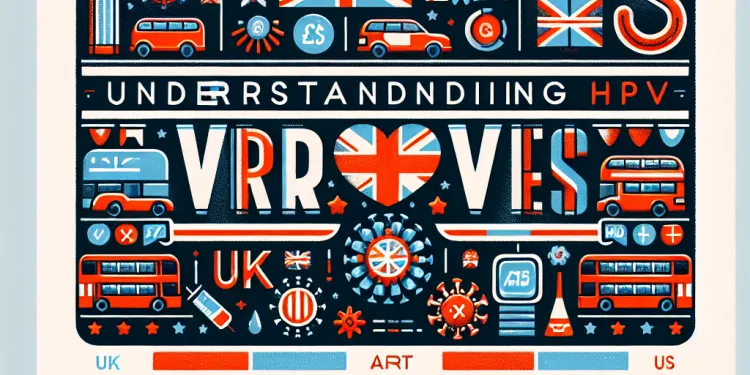
How many types of HPV are there?
Relevance: 33%
-

Is there a vaccine for gonorrhoea?
Relevance: 33%
-
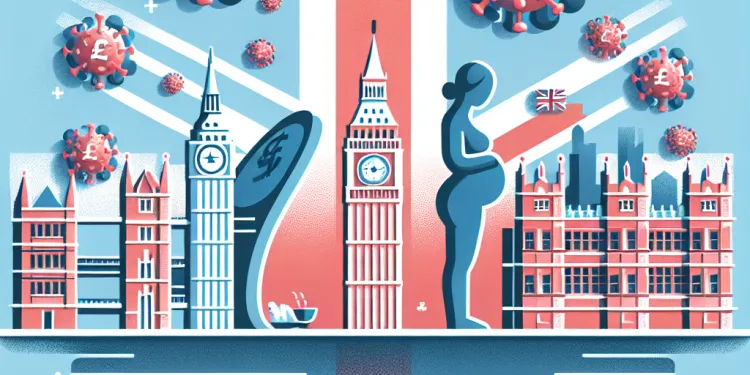
Can pregnant women get chickenpox?
Relevance: 33%
-

Are there vaccines for meningitis?
Relevance: 32%
-
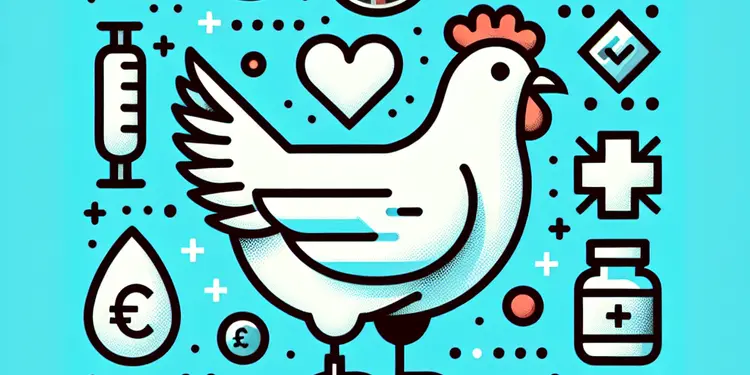
Should I get the chickenpox vaccine?
Relevance: 32%
-
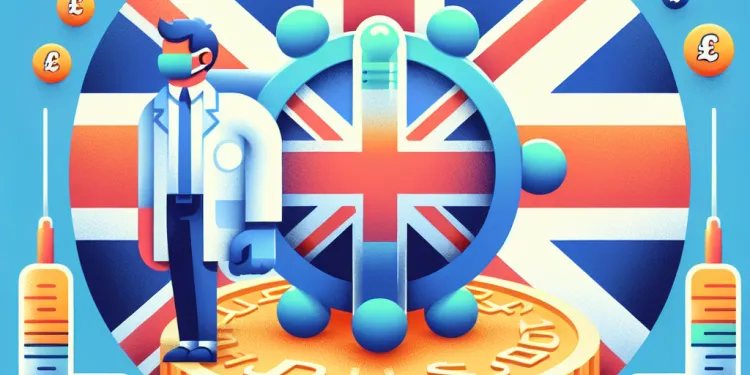
Who should get the flu vaccine in the UK?
Relevance: 32%
-
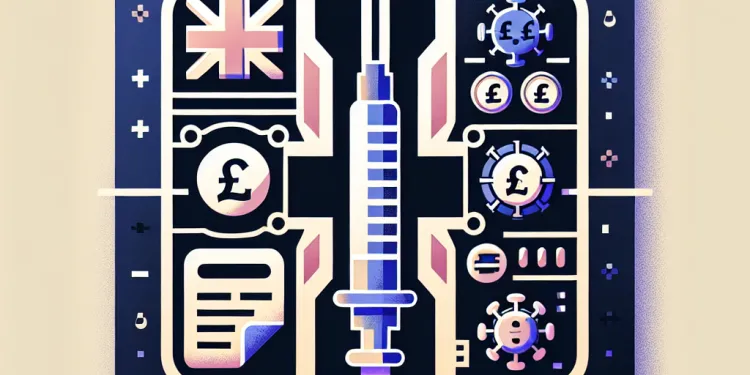
What are the different types of vaccines?
Relevance: 31%
-
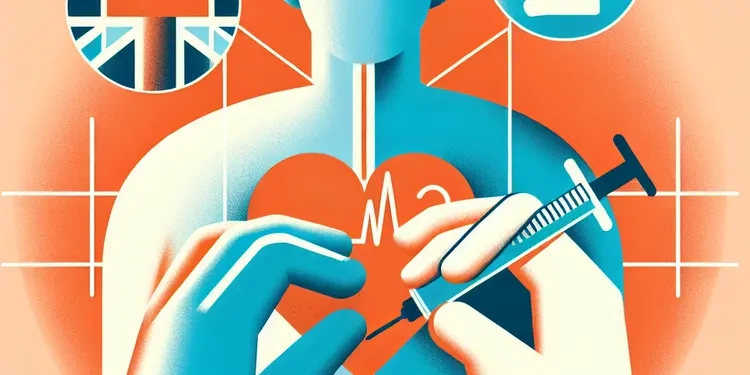
Who should get a meningitis vaccination?
Relevance: 31%
-
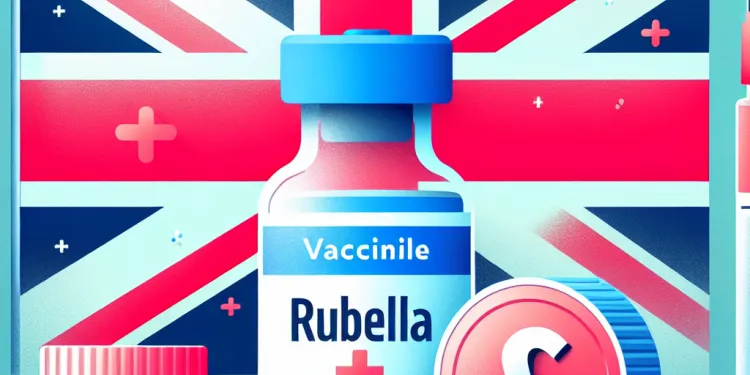
Who should receive the Rubella vaccine?
Relevance: 31%
-

What is the MMR vaccine?
Relevance: 30%
-
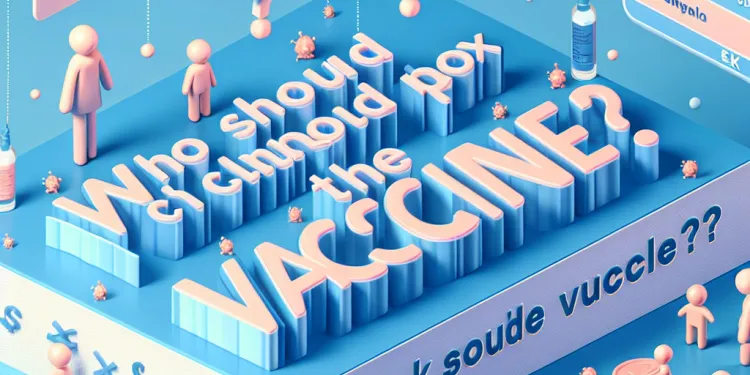
Who should get the chickenpox vaccine?
Relevance: 30%
-
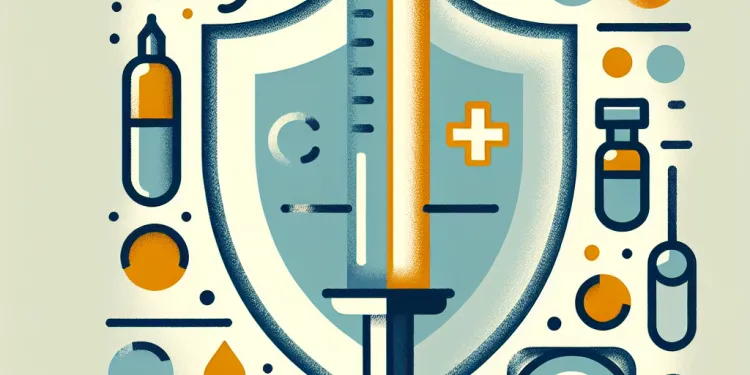
Is there a vaccine for the Zika virus?
Relevance: 30%
-

How important is it to get a flu vaccine in 2026?
Relevance: 30%
-
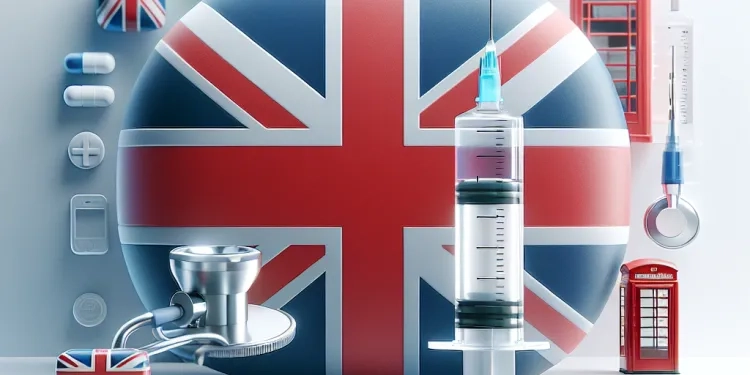
What if I'm not eligible for a free flu vaccine, can I still get vaccinated?
Relevance: 29%
Introduction
The uptake of the Human Papillomavirus (HPV) vaccine among young women in the UK has significantly increased in recent years. This positive trend indicates an enhanced public health initiative and growing awareness of the importance of vaccination in preventing certain cancers and other conditions associated with HPV. Health experts across the UK celebrate this surge as a major step towards reducing the incidence of HPV-related health issues, including cervical cancer.
Understanding HPV and Its Impact
HPV is a group of viruses intimately connected to various cancers, including cervical, anal, and throat cancers. It is one of the most common sexually transmitted infections, typically passed on through intimate skin-to-skin contact. While many HPV infections clear up naturally, persistent infections can lead to severe health outcomes, emphasizing the critical need for preventative measures such as vaccination.
Increased Vaccination Rates
Recent reports highlight a substantial rise in vaccination rates among young women, attributed to nationwide campaigns and enhanced accessibility to vaccines. This surge has been largely driven by initiatives in schools and public health campaigns that specifically target younger demographics. As a result, the UK has seen a noticeable increase in vaccinations among adolescents and young adults, significantly ahead of previous years.
Government and NHS Initiatives
The UK government, alongside the National Health Service (NHS), has played a pivotal role in promoting HPV vaccination. Through educational programmes and collaborations with schools, the effort to demystify the vaccine and encourage uptake has borne fruit. The school-based vaccination programme, initially targeting girls aged 12 to 13, has now been expanded to include boys of the same age group, further fortifying the community's protective barrier against HPV.
Public Awareness and Education
Improved vaccine literacy among the UK population is another significant factor contributing to the surge in vaccination rates. The public has become increasingly aware of the vaccine’s benefits, not only through traditional media outlets but also via digital and social media platforms, where reliable information about HPV vaccination circulates widely.
Future Implications and Benefits
The increased vaccination rates are expected to yield long-term health benefits, prominently reducing the incidence of cervical cancer and other HPV-related conditions. By fostering a higher vaccination coverage, the UK sets a promising precedent for other countries. The ongoing advocacy and educational efforts aim to further bolster vaccine confidence and ensure sustained public health safety against HPV.
Conclusion
The surge in HPV vaccination rates among young women in the UK marks a significant breakthrough in public health efforts. With continued dedication from government bodies, healthcare professionals, and the community, the UK progresses towards eradicating HPV-related diseases, ensuring a healthier future for the younger generations.
Introduction
More young women in the UK are getting the Human Papillomavirus (HPV) vaccine. This is good news for public health. The vaccine helps stop some cancers and other problems caused by HPV. Health experts in the UK are happy because this can help prevent health issues like cervical cancer.
What is HPV and Why is it Important?
HPV is a group of viruses. These viruses can cause cancers like cervical, anal, and throat cancer. HPV spreads through close skin contact, often during sex. Most HPV infections go away by themselves, but some can cause serious health problems. This is why getting the vaccine is important.
More People are Getting the Vaccine
More young women are getting the vaccine now because of campaigns and easier access. Schools and health campaigns are helping more young people get vaccinated. The number of people getting vaccines is higher now than it was before.
Government and NHS Help
The UK government and the National Health Service (NHS) help promote the HPV vaccine. They teach people about the vaccine through school programs. At first, only girls aged 12 to 13 got the vaccine in schools. Now, boys of the same age get it too. This helps protect everyone better from HPV.
Learning About the Vaccine
People in the UK know more about the benefits of the vaccine now. Information is shared on TV and online. Social media also helps spread the word about the HPV vaccine.
Benefits for the Future
More people getting the vaccine means fewer cases of cervical cancer and other HPV problems later. The high number of vaccinated people in the UK is a good example for other countries. Ongoing education and advocacy will keep people confident in getting vaccines for safety.
Conclusion
The increase in young women getting the HPV vaccine in the UK is a big step forward. With help from the government, health workers, and the community, the UK works towards preventing HPV-related diseases and ensuring a healthier future for everyone.
Frequently Asked Questions
What is HPV?
HPV, or Human Papillomavirus, is a common virus that can lead to certain types of cancers and other diseases.
Why has there been a surge in HPV vaccination rates among young women in the UK?
The surge may be due to increased awareness campaigns, better access to vaccines, and public health initiatives encouraging vaccination.
What age group is primarily targeted for the HPV vaccine in the UK?
The HPV vaccination is primarily targeted at girls and boys aged 12 to 13 years old in the UK.
How effective is the HPV vaccine?
The HPV vaccine is highly effective at preventing HPV infections and the cancers caused by HPV when given before exposure to the virus.
Which types of HPV does the vaccine protect against?
The vaccine protects against the most common types of HPV that cause cervical cancer and other cancers, including types 16 and 18.
Are there any side effects associated with the HPV vaccine?
Like all vaccines, the HPV vaccine can cause side effects, but they are usually mild, such as soreness at the injection site, fever, and headache.
Has the COVID-19 pandemic affected HPV vaccination rates?
Initially, the pandemic led to disruptions in routine vaccination services, but efforts have been made to restore and increase vaccination coverage.
Why is vaccination important even if someone is sexually inactive?
Vaccination is most effective before an individual is exposed to HPV, so vaccinating young people protects them before they become sexually active.
Can the HPV vaccine cause infertility?
There is no evidence to suggest that the HPV vaccine causes infertility.
Is the HPV vaccine given to boys in the UK?
Yes, the HPV vaccine is offered to boys aged 12 to 13 to prevent the spread of HPV and associated diseases.
How many doses of the HPV vaccine are required?
The full course of the HPV vaccine typically involves two or three doses depending on the age at initial vaccination.
Can the HPV vaccine protect against other sexually transmitted infections (STIs)?
The HPV vaccine specifically protects against HPV-related diseases and does not protect against other STIs.
Is the HPV vaccine free in the UK?
Yes, the HPV vaccine is offered for free to eligible age groups through the NHS vaccination programme.
What impact does the HPV vaccine have on cervical cancer rates?
Countries with high HPV vaccination rates have seen significant reductions in HPV infections, precancerous cervical lesions, and cervical cancer rates.
How has public perception of the HPV vaccine changed in recent years?
Increased awareness of the vaccine's benefits and safety, as well as public health campaigns, have improved public perception over time.
Why is it important to complete the full course of the HPV vaccine?
Completing the full course maximizes the effectiveness of the vaccine in protecting against HPV-related diseases.
Does the HPV vaccine provide lifetime protection?
Current studies suggest long-lasting protection, but ongoing research continues to monitor the duration of vaccine-induced immunity.
Can adults who were not vaccinated as teenagers still receive the HPV vaccine?
Yes, adults up to a certain age may be vaccinated, but it is most beneficial when given before HPV exposure.
Are there any contraindications for the HPV vaccine?
Individuals with severe allergic reactions to any component of the vaccine or previous doses should not receive the vaccine.
What resources are available for individuals seeking more information about HPV vaccination?
The NHS website, healthcare providers, and official public health campaigns are reliable sources for information on HPV vaccination.
What is HPV?
HPV stands for Human Papillomavirus.
It is a virus that can make people sick.
You cannot see it, but it can live in your body.
If you need help, ask a trusted adult.
Using pictures, videos, or talking with a doctor can help you understand more.
HPV stands for Human Papillomavirus. It is a common virus that can sometimes cause cancer and other illnesses.
Why are more young women in the UK getting the HPV vaccine?
Many young women in the UK are getting the HPV vaccine now. Let's find out why! The HPV vaccine helps protect against a virus that can cause cancer. It's very important for health.
If you find reading hard, you can ask someone to read this with you. You can also use tools like text-to-speech apps. These tools can read the text out loud for you.
The rise might be because more people know about getting shots, it’s easier to get the vaccine, and health groups are telling people to get vaccinated.
Who should get the HPV vaccine in the UK?
The HPV vaccine is for kids and teens in the UK.
Most kids get it at age 12 or 13.
To help understand this question, you might try using pictures or talking with an adult.
The HPV vaccine is for girls and boys who are 12 or 13 years old in the UK.
Here are some things that might help:
- Ask your doctor if you have questions.
- Talk to your parents or a trusted adult.
- Look for videos that explain the vaccine.
Does the HPV shot work well?
The HPV shot helps stop you from getting sick. It is very good at doing this.
This shot can keep you safe from some types of cancer. It also helps stop warts that you can get from the virus.
If you want to know more, you can ask a doctor or look for videos online. These can help explain things better.
The HPV vaccine works really well. It stops you from getting HPV infections. It also stops the cancers that HPV can cause. To work best, you should get the vaccine before you come into contact with the virus.
What types of HPV does the vaccine protect you from?
The vaccine protects you from some types of HPV. HPV is a virus that can make you sick. The vaccine helps keep you safe.
Here are some ways to learn more:
- Ask a doctor or nurse for help.
- Look at simple pictures or videos about the vaccine.
- Use apps that explain health in easy words.
The vaccine helps stop the most common kinds of HPV from causing cancer. These include types called 16 and 18, which can cause cervical cancer and other cancers.
Does the HPV shot cause any side effects?
The HPV shot is safe for most people. Some people might feel side effects. Here’s what you might feel:
- A sore arm where the shot was given.
- Feeling tired.
- A headache.
- Fever.
- Feeling sick to your stomach.
If you feel worried, talk to a doctor or nurse. They can help you understand.
Tips to feel better:
- Rest if you feel tired.
- Drink lots of water.
- Tell an adult how you feel.
All vaccines can cause some side effects. The HPV vaccine might make your arm sore where you get the shot. You might also get a fever or a headache. These side effects are usually not too bad.
Did COVID-19 change how many people get the HPV vaccine?
At first, the pandemic made it hard for people to get their usual vaccines. But now, people are working hard to make sure everyone can get their vaccines again.
Here are some ways to help:
- Use a calendar to remember vaccine dates.
- Ask a family member or friend to help with reminders.
- Talk to your doctor if you have questions.
Why is getting a vaccine important even if you are not having sex?
Vaccines help protect us from getting sick. Even if someone is not having sex now, they might have sex in the future. It's good to be safe before they do. Vaccines can stop diseases that spread through sex. Getting a vaccine can keep you healthy. Ask your doctor or nurse about vaccines. They can tell you which one is right for you. Reading with a family member or friend can help. Using pictures or videos can make learning easier.It is best to get the HPV vaccine before you come into contact with the virus. Getting the vaccine when you are young helps keep you safe before you start having sex.
Can the HPV vaccine make it hard to have babies?
Scientists say the HPV shot does not make it hard to have babies.
Do boys get the HPV vaccine in the UK?
Yes, boys in the UK can get the HPV vaccine. It helps protect them from some types of cancer and other illnesses.
To understand more, ask a doctor or nurse. They can explain how the vaccine keeps you healthy.
Yes, boys aged 12 to 13 get the HPV vaccine. This helps stop the spread of the virus and keeps them healthy.
How many times do you need the HPV vaccine?
You need the HPV vaccine more than once.
Most people need 2 or 3 shots.
Ask a doctor about how many shots you need.
They can help you keep track of your shots.
When you get the HPV shot, you might need two or three doses. It depends on how old you are when you first get the shot.
Does the HPV vaccine stop other infections you can get from sex?
The HPV vaccine helps to stop HPV, which is a virus. It does not stop other infections you can get from sex.
If you want to stay safe from infections, use a condom and talk to your doctor or nurse.
The HPV vaccine helps keep you safe from illnesses caused by the HPV virus. But it does not stop other infections you can get from sex.
Can you get the HPV vaccine for free in the UK?
The HPV vaccine helps protect you from some types of cancer. In the UK, many people can get this vaccine for free.
Most children can get it for free when they are around 12 to 13 years old. This is given at school. If you missed it, you might still be able to get it for free later.
Ask your doctor if you can get the HPV vaccine for free. They can give you more information.
If you need help to read, ask someone you trust to read with you. You can also try using a tool that reads the words out loud.
Yes, you can get the HPV vaccine for free if you are the right age. The NHS gives it to people who qualify.
How does the HPV vaccine help with cervical cancer?
The HPV vaccine helps stop people from getting cervical cancer. It protects the body from viruses that can cause this cancer.
Here’s how it works:
- The vaccine stops certain viruses called HPV.
- These viruses can cause cervical cancer.
- Getting the vaccine makes it less likely to get the cancer.
If you want help, you can:
- Ask a doctor about the vaccine.
- Use simple guides or videos to learn more.
- Talk to someone you trust.
Countries where lots of people get the HPV vaccine have seen big drops in HPV infections, changes in the cervix that can lead to cancer, and cervical cancer itself.
What do people think about the HPV vaccine now compared to a few years ago?
More people know that the vaccine is safe and helps us stay healthy. Health experts talk to us about this to make sure we understand.
Why should you get all your HPV vaccine shots?
Getting all your HPV shots is important. It keeps you safe from the HPV virus, which can make you sick later. The shots work best when you get all of them.
Here are some tips to help you:
- Ask someone you trust to remind you about the shots.
- Write down the dates of your shots on a calendar.
- Talk to your doctor or nurse if you have questions.
Finish all the vaccine shots to make sure it works best. It helps keep you safe from illnesses caused by HPV (a kind of virus).
Does the HPV vaccine protect you forever?
The HPV vaccine helps keep you safe from some kinds of viruses that can make you sick.
We do not know if it protects you forever. But doctors think it keeps you safe for a long time.
To learn more or get help, you can talk to your doctor or nurse.
Studies say the vaccine keeps you safe for a long time. Scientists are still checking how long it lasts. Tools like picture stories and using simple words can help you understand more about vaccines.
Can grown-ups get the HPV shot if they didn't get it as teens?
Yes, grown-ups can get the vaccine. It's best to have it before coming into contact with HPV.
Is there anyone who should not get the HPV shot?
If you have a bad allergy to something in the vaccine, or if you had a bad allergy to a dose of the vaccine before, you should not get the vaccine.
Where can people find more information about the HPV vaccine?
If you want to learn more about the HPV vaccine, you can:
- Ask your doctor or nurse. They can tell you more about it.
- Visit the local health clinic. They have information to help you.
- Look for easy-to-read materials about vaccines. Some websites have this information.
It can help to take a friend or family member when you look for information. They can support you and help you remember things.
The NHS website, doctors, nurses, and health campaigns give good information about the HPV vaccine.
Useful Links
Have you found an error, or do you have a link or some information you would like to share? Please let us know using the form below.
-->
This website offers general information and is not a substitute for professional advice.
Always seek guidance from qualified professionals.
If you have any medical concerns or need urgent help, contact a healthcare professional or emergency services immediately.
Some of this content was generated with AI assistance. We’ve done our best to keep it accurate, helpful, and human-friendly.
- Ergsy carfully checks the information in the videos we provide here.
- Videos shown by Youtube after a video has completed, have NOT been reviewed by ERGSY.
- To view, click the arrow in centre of video.
- Most of the videos you find here will have subtitles and/or closed captions available.
- You may need to turn these on, and choose your preferred language.
- Go to the video you'd like to watch.
- If closed captions (CC) are available, settings will be visible on the bottom right of the video player.
- To turn on Captions, click settings .
- To turn off Captions, click settings again.
More Items From Ergsy search
-

Surge in HPV Vaccination Rates Among Young Women in the UK
Relevance: 100%
-

Do men need the HPV vaccine?
Relevance: 75%
-

Can HPV affect both men and women?
Relevance: 70%
-

What is the year 8 HPV vaccine? | NHS
Relevance: 62%
-

What age group is most at risk for HPV?
Relevance: 61%
-

Who should get the HPV vaccine?
Relevance: 60%
-

Is there a vaccine for HPV?
Relevance: 58%
-

How common is HPV?
Relevance: 58%
-

What is the HPV Virus?
Relevance: 56%
-

HPV - My Story | NHS
Relevance: 55%
-

Can HPV lead to cancer?
Relevance: 54%
-

How is HPV transmitted?
Relevance: 53%
-

How can HPV be prevented?
Relevance: 52%
-

Can using condoms fully protect against HPV?
Relevance: 52%
-

Can HPV be treated?
Relevance: 52%
-

Can HPV go away on its own?
Relevance: 51%
-

What is the link between HPV and cervical cancer?
Relevance: 51%
-

Can pregnant women get the flu vaccine?
Relevance: 47%
-

Is HPV testing available?
Relevance: 46%
-

Are there symptoms of an HPV infection?
Relevance: 46%
-

What health problems can HPV cause?
Relevance: 45%
-

Why are teenagers and young adults recommended to get the MenB vaccine?
Relevance: 36%
-

Anxiety in young people
Relevance: 36%
-

What is a subunit vaccine?
Relevance: 35%
-

Is there a vaccine for H3N2?
Relevance: 34%
-

Children's Vaccination Schedule
Relevance: 34%
-

How many types of HPV are there?
Relevance: 33%
-

Is there a vaccine for gonorrhoea?
Relevance: 33%
-

Can pregnant women get chickenpox?
Relevance: 33%
-

Are there vaccines for meningitis?
Relevance: 32%
-

Should I get the chickenpox vaccine?
Relevance: 32%
-

Who should get the flu vaccine in the UK?
Relevance: 32%
-

What are the different types of vaccines?
Relevance: 31%
-

Who should get a meningitis vaccination?
Relevance: 31%
-

Who should receive the Rubella vaccine?
Relevance: 31%
-

What is the MMR vaccine?
Relevance: 30%
-

Who should get the chickenpox vaccine?
Relevance: 30%
-

Is there a vaccine for the Zika virus?
Relevance: 30%
-

How important is it to get a flu vaccine in 2026?
Relevance: 30%
-

What if I'm not eligible for a free flu vaccine, can I still get vaccinated?
Relevance: 29%


